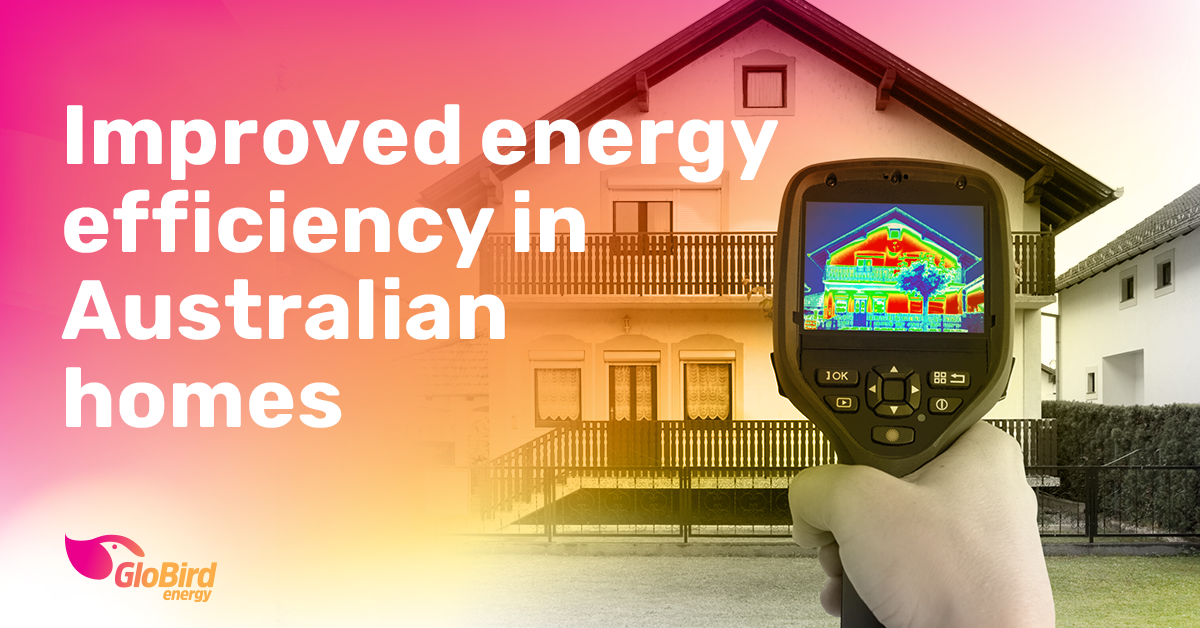One of the most significant contributing factors to the energy efficiency of houses and apartments is how airtight they are. Conversely, gaps and leaks invariably contribute to poor energy efficiency.
We’ve written previously about how important it is to check for air leaks around vents, doors, windows, and any pipes that run from inside to outside. Sealing those gaps will result in significant savings on energy bills, particularly when heating your home during winter.
However, it’s worth noting that improved airtightness has a direct correlation with improved indoor air quality, so getting this right can do more than save you money. It can improve your family’s health.
The home energy rating scheme takes this into account
In our recent energy news roundup, we mentioned that the Government is looking at expanding the Nationwide House Energy Rating Scheme (NatHERS) to include energy assessments and ratings for existing homes.
NatHERS currently assesses new homes and major renovations to ensure they meet energy-efficiency standards. The scheme also promotes sustainable building practices.
The assessment aims to boost energy efficiency, reduce carbon footprints, reduce household energy costs, and improve comfort for Australians in their homes.
The planned expansion would extend the scheme to millions of existing homes nationwide from mid-2025.
New homes are more airtight than they used to be
Partly because of the NatHERS assessments, we are seeing an improvement in the energy efficiency of new home builds in Australia.
When CSIRO ran a study in 2015, it found that almost half the homes they tested returned poor results for airtightness.
In a recently completed study, however, CSIRO found that the new homes they tested this time were up to 50 per cent more airtight than those tested in 2015.
Researchers tested a total of 233 apartments and detached houses built over the past four years in Melbourne, Sydney, Canberra, Brisbane, and Adelaide (homes specifically designed for air tightness were excluded).
The benefits of airtightness are clear
By definition, airtightness minimises unintended air movements within, into, and out of a building. By preventing outdoor air from entering and indoor air from escaping, there is far less wastage of air that has been deliberately cooled or heated by the occupants for their comfort.
The leaks and draughts that result from poor air tightness have been shown to increase energy bills by up to 20 per cent … which, logically, means that eliminating any such issues can reduce your bills by up to that much.
But beware: there is such a thing as too airtight! homes that are too airtight without controlled ventilation can suffer from condensation, mould, and associated health issues for residents, including headaches and nausea from higher carbon dioxide and monoxide levels.
Houses and apartments that meet recommended airtightness levels are more comfortable, have lower energy bills, and healthier indoor air quality.
Most air leaks can be remedied
While it makes sense to build homes that are more airtight in the first place, it is usually quite a simple process to identify any air leaks in a building and not much more challenging to rectify any issues.
Using a blower door test to identify the leakage rate and determine where leakages occur, the research discovered that air leaks still exist in most new homes, mainly from bathroom fans, sliding doors, and poor or missing door seals.
That suggests there is still some room for improvement.
The report outlined a range of recommendations for Australian building codes to address common air tightness issues, including:
- ➡️ Establishing air tightness standards in the National Construction Code (NCC)
- ➡️ Requiring controlled ventilation in new buildings, particularly apartments, to reduce indoor pollutants and moisture
- ➡️ Making air barriers such as building wraps mandatory in all new residences
- ➡️ Providing on-site training and educational resources to connect builders with cost-effective solutions that improve building performance
NatHERS appears to have us on the right track
The study found that actual air tightness levels were closely aligned with those assumed by NatHERS, which provides an energy efficiency star rating for residential buildings.
Airtightness values are displayed on NatHERS certificates, which note the impact of airtightness on the star rating.
While it’s encouraging that new homes are performing better than ever, we do need a concerted campaign to assess and retrofit established dwellings. There are, after all, hundreds of thousand – potentially millions – of Aussie homes that could be made much more energy efficient by improving their airtightness.
It’s the path to not only lowering household energy bills but also lowering our energy use per capita, which is among the highest in the world, as well as reducing our emissions.
Note: You can read more about the research in the article Sealing the comfort of our new homes on the CSIRO website.
